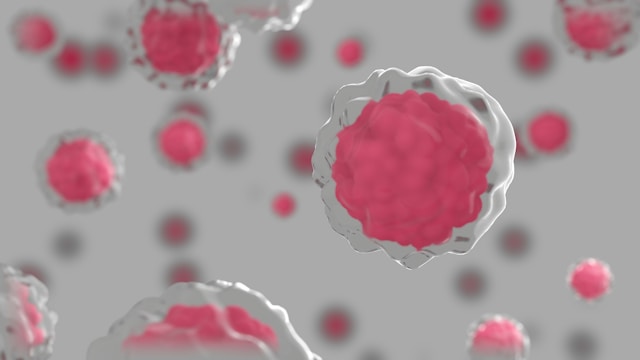The Illinois Community Health Workers Association (ILCHWA) is committed to supporting Community Health Workers (CHWs) in their vital role of promoting public health, especially during the ongoing COVID-19 pandemic. This comprehensive guide aims to equip CHWs with essential knowledge and strategies to effectively respond to the challenges posed by COVID-19 in their communities.
Overview of COVID-19
COVID-19 is a respiratory illness caused by the SARS-CoV-2 virus. It was first identified in Wuhan, China, in December 2019 and has since spread globally, leading to a pandemic.
Symptoms
Common symptoms of COVID-19 include:
- Fever or chills
- Cough
- Shortness of breath or difficulty breathing
- Fatigue
- Muscle or body aches
- Headache
- Loss of taste or smell
- Sore throat
- Congestion or runny nose
- Nausea or vomiting
- Diarrhea
Symptoms can range from mild to severe and may appear 2-14 days after exposure to the virus.
Transmission
COVID-19 spreads primarily through:
- Respiratory droplets released when an infected person coughs, sneezes, or talks
- Close personal contact (within 6 feet) with an infected person
- Touching surfaces contaminated with the virus and then touching one’s face
Role of CHWs in COVID-19 Response
Community Health Workers play a crucial role in the COVID-19 response, serving as a bridge between healthcare systems and communities. Key responsibilities include:
- Education: Providing accurate, up-to-date information about COVID-19 to community members
- Prevention Support: Promoting and demonstrating preventive measures
- Contact Tracing: Assisting health departments in identifying and monitoring individuals who may have been exposed to COVID-19
- Resource Navigation: Connecting community members with testing, vaccination, and treatment resources
- Community Advocacy: Addressing health disparities and ensuring equitable access to care
COVID-19 Prevention Strategies
CHWs should promote the following evidence-based prevention methods:
Vaccination
Encourage community members to get vaccinated against COVID-19. Vaccines are safe, effective, and crucial in preventing severe illness, hospitalization, and death.
Mask-Wearing
Promote proper mask-wearing in public indoor settings, especially in areas with high transmission rates. Demonstrate how to wear masks correctly, covering both nose and mouth.
Social Distancing
Encourage maintaining at least 6 feet of distance from others who are not in the same household, especially in indoor public spaces.
Hand Hygiene
Emphasize the importance of frequent handwashing with soap and water for at least 20 seconds, or using hand sanitizer containing at least 60% alcohol when soap and water are not available.
Ventilation
Promote good ventilation in indoor spaces by opening windows and doors when possible, or using air purifiers.
Vaccine Information
Provide up-to-date information on available COVID-19 vaccines:
- Types of vaccines available (e.g., Pfizer-BioNTech, Moderna, Johnson & Johnson)
- Vaccine efficacy and safety data
- Vaccination schedule and booster recommendations
- Common side effects and what to expect after vaccination
Address common concerns and misconceptions about vaccines, using clear, factual information from reputable sources like the CDC and WHO.
Supporting Vulnerable Populations
CHWs should focus on assisting high-risk groups, including:
- Elderly individuals
- People with underlying health conditions
- Underserved communities
- Essential workers
Strategies to support these populations include:
- Providing tailored education on COVID-19 risks and prevention
- Assisting with vaccine appointment scheduling and transportation
- Connecting individuals to resources for food, housing, and financial assistance
- Offering language interpretation and culturally appropriate support
Mental Health Considerations
Address the psychological impact of the pandemic by:
- Recognizing signs of stress, anxiety, and depression in community members
- Providing information on coping strategies and stress management techniques
- Connecting individuals to mental health resources and support services
- Promoting social connections while maintaining physical distancing
Combating Misinformation
Guide CHWs in identifying and addressing COVID-19 misinformation:
- Encourage critical thinking and fact-checking
- Provide reliable sources of information (CDC, WHO, local health departments)
- Address common myths and misconceptions about COVID-19 and vaccines
- Use culturally appropriate communication strategies to build trust
Self-Care for CHWs
Emphasize the importance of self-care for CHWs:
- Prioritize physical health through proper nutrition, exercise, and sleep
- Practice stress management techniques like meditation or deep breathing
- Set boundaries and take regular breaks
- Seek support from colleagues, supervisors, or mental health professionals when needed
Resources and Further Reading
Provide links to reputable sources for additional information:
- Centers for Disease Control and Prevention (CDC) COVID-19 Information
- World Health Organization (WHO) COVID-19 Information
- Illinois Department of Public Health COVID-19 Resources
- Substance Abuse and Mental Health Services Administration (SAMHSA) COVID-19 Resources
ILCHWA is committed to supporting CHWs in their critical role during the COVID-19 pandemic. By utilizing this resource guide and staying informed with the latest guidelines, CHWs can continue to make a significant impact in promoting health equity and community well-being. Remember, your work is invaluable in navigating these challenging times, and ILCHWA is here to support you every step of the way.
